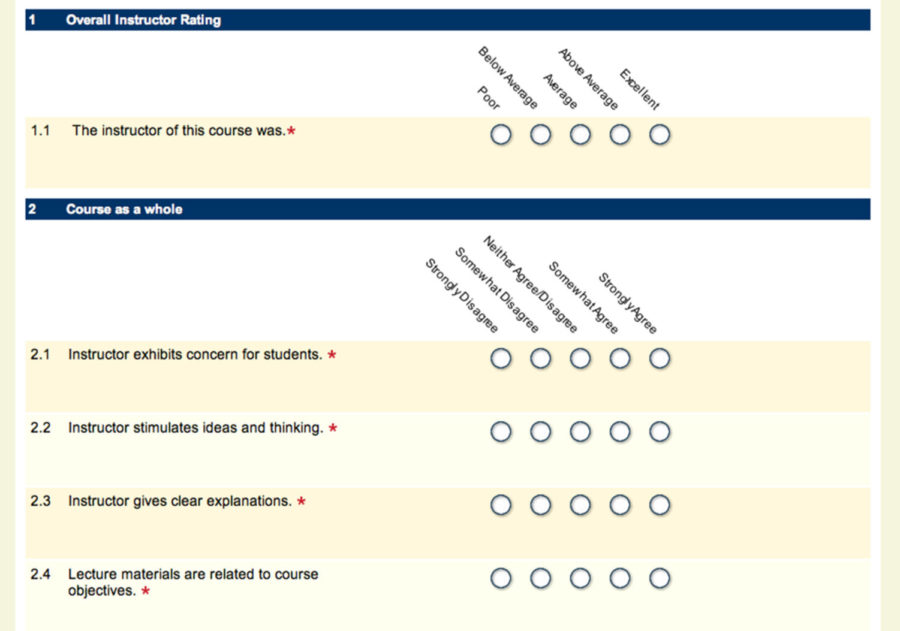Editorial: Course evaluations help benefit students, instructors
Students must fill out their online course evaluations to help their professors improve their teaching styles.
February 12, 2015
It may come as a surprise to some students that their professor might not actually be a “professor.” Iowa State University and the university’s separate colleges and departments have varying requirements for respective staffs on what the classification of a professor may be.
In the College of Human Sciences, human development and family studies professors must begin as an assistant professor, move to an associate professor and finally attain the name of professor as their profession. Starting out as an assistant professor requires an educator to be at the assigned level for six years, as well as become nationally recognized and published in order to be named an associate professor.
Once named an associate professor, one must become a world-recognized professor and be an associate professor for an additional six years. Once those 12 years of work and numerous publications have been attained, an educator in the human development and family studies curriculum can be named a professor.
While this may not be the case for all ISU departments and staffs, University administration needs to work with its professors at any and all levels to help encourage growth and movement up the ranks in classifications as professors.
ISU students also need to recognize that just because their professor isn’t named a professor doesn’t mean they are not qualified to instruct. Iowa State needs to step up with its professors and students to create an environment that allows professors to thrive, achieve the name of professor and/or receive tenure.
Students who are included need to create a productive work environment because, we too, play a role in the review and promotion of professors at Iowa State University. In-class student evaluations and online course evaluations are not just sent to students to clog email accounts or waste a student’s time. In reality, they are essential to a professor that is up for promotion or tenure review.
According to Iowa State University’s Center for Excellence in Learning and Teaching, students are notified that their reviews are important and are used in determining if professors are completing a satisfactory course. Course evaluations also “serve to improve instruction as well as to evaluate faculty performance; such uses should be commonly understood and accepted by institutional stakeholders”.
Keeping these facts regarding the student course evaluations in mind, don’t let evaluations sit in your email inbox for weeks on end. Not only is it important for our professors to have this feedback for purposes of advancing their careers, but they also have a very real impact on your own education as well as the future education of other students.
If a professor does a truly admirable job instructing students and structuring the course, reward them with a positive review. By that same token, if another professor truly does not uphold their end of the educational bargain, make sure to let your opinion be known so that they can alter the class structure as well as their teaching method for future semesters and performance reviews.







